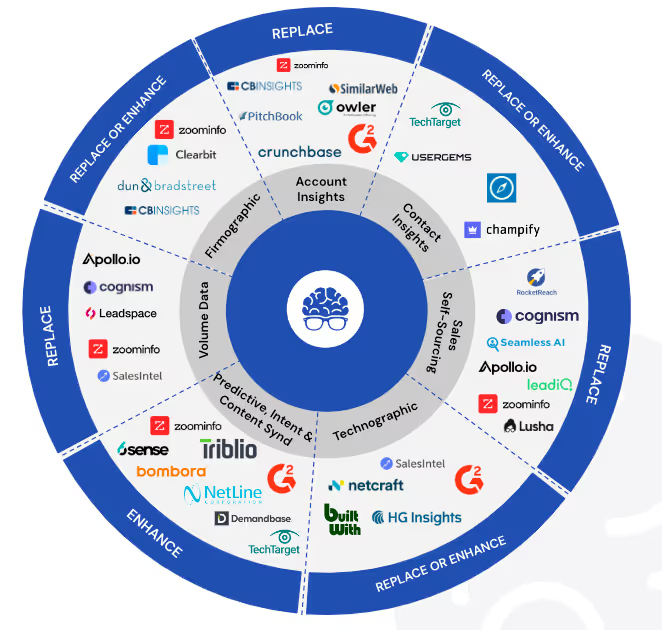For years, the Law of Sales Activity was gospel in sales leadership: results were directly proportional to the amount of activity a rep put in. More dials, more emails, more sequences—it was all about playing the numbers game. I managed a team of 150+ AEs, all working toward activity KPIs, and I was a firm believer in this approach.
But times have changed, and so have sales dynamics. Automation broke the system.
Tools like Outreach and Salesloft made it easy to flood the market with templated emails and automated sequences. The sheer volume of outreach became overwhelming for buyers. Suddenly, activity KPIs rewarded busyness, not results. Reps gamed the system, managers celebrated "metrics," and the house of cards started to fall.
Here’s what we failed to realize: Sales is no longer a numbers game; it’s an attention game.
We live in an attention economy, where buyers are inundated with emails, calls, and pitches. The ability to focus on the right targets, the right accounts, and the right messaging is far more valuable than sending 1,000 generic emails. In this new era, the Law of Sales Activity has been replaced by The Law of Sales Focus—and it’s transforming how sales teams should operate.
Why the Law of Sales Focus Works
Focus forces reps to be intentional. Intentional reps:
- Research their accounts.
- Personalize their outreach.
- Engage meaningfully with prospects.
Intentional work generates better results than volume-driven metrics ever could. Instead of rewarding "busyness," we need to reward thoughtfulness and precision.
Imagine this KPI:
Give a rep 10 accounts per month. Their goal is to book 3 meetings.
If those accounts are well-targeted and ICP-aligned, 9 meetings per quarter can generate a healthy pipeline. Yet, many reps book fewer meetings because they’re stuck in the old cycle—racing to hit activity metrics rather than engineering meaningful outcomes.
Less activity + more focus = better pipeline outcomes.
The Role of Data in the Age of Focus
In the past, sales data was about finding more opportunities. The larger the territory, the better. But in today’s attention economy, the role of data is to disqualify 90% of the noise and guide reps to the 10% of accounts that truly matter.
Modern data needs to:
- Identify high-propensity-to-buy accounts.
- Deliver signals that reveal intent (new funding, hiring trends, or product launches).
- Help reps disqualify accounts that don’t align with their ICP.
The best data no longer answers, "Who can I target?" but rather, "Who should I target?"
Automation vs. Intention
The irony of automation tools like Outreach is that while they were designed to streamline outreach, they’ve encouraged reps to take shortcuts. Sending 100 emails in a day is easy. Personalizing 10 thoughtful emails is hard—but that’s what creates results.
Automation should serve focus, not replace it. Use it to:
- Surface insights about accounts.
- Streamline workflows for repetitive tasks.
- Free up time for reps to do intentional work.
The Shift from Activity to Focus
The traditional sales playbook, rooted in activity-driven KPIs, no longer fits today’s attention economy. For years, sales teams have been coached to prioritize volume: 20 calls, 50 emails, and 10 sequences daily. These metrics created an illusion of productivity but did little to measure actual progress toward outcomes. They rewarded motion over meaning and activity over impact. The result? Burnout for reps, frustrated prospects inundated with generic outreach, and diminishing returns for organizations.
The new playbook demands a shift to focus-driven KPIs, where intentional, outcome-oriented activities take precedence. For example:
- Instead of tracking calls and emails, track 3 meetings booked with well-researched, high-value accounts.
- Measure deals advanced in the pipeline—2 meaningful opportunities moved forward through personalized engagement.
- Celebrate 1 key account closed, emphasizing quality interactions over the number of touchpoints.
This approach aligns reps' daily work with revenue-generating activities, forcing them to prioritize efforts that drive outcomes rather than blindly chase metrics.
Why Focus Matters
- Quality Over Quantity: In a world where buyers are overwhelmed by outreach, thoughtful and personalized engagement stands out. Fewer, well-targeted interactions are far more effective than a scattershot approach.
- Improved Efficiency: Reps spend less time chasing low-probability accounts and more time working on accounts with a higher propensity to close. This reduces wasted effort and increases pipeline efficiency.
- Higher Job Satisfaction: Reps feel more accomplished when their work directly translates into results. They’re no longer forced into meaningless activity for the sake of hitting arbitrary targets.
- Better Prospect Experience: Focused sales efforts mean prospects receive tailored, relevant communication that respects their time. This builds trust and increases the likelihood of conversion.
What It Takes to Shift to Focus-Driven KPIs
- Better Leadership: Managers need to stop measuring and rewarding activity alone. They should encourage thoughtful work by setting realistic, outcome-focused goals that push reps to be strategic.
- Smarter Data: Sales teams must have access to high-quality, precise data to identify and prioritize accounts with the highest potential. Tools that surface intent signals, firmographic insights, and buying propensity are critical.
- Cultural Change: Organizations must let go of the "always be busy" mindset and adopt an "always be strategic" philosophy. This requires ongoing training, coaching, and buy-in from leadership.
- Technology That Supports Focus: Instead of tools designed for mass outreach, teams need platforms that enable personalized engagement at scale. Automation should enhance focus, not replace it.
Reflection Question:
Do you work better when focusing on fewer, high-quality activities or when racing to hit outdated activity metrics?




